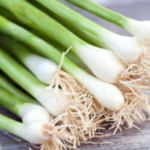Onion: A Versatile Ingredient with Surprising Health Benefits
Beyond being a common ingredient in family meals, onions are packed with nutrients such as vitamins A, C, and B, as well as calcium, folic acid, magnesium, fiber, and chromium. As a result, onions offer a plethora of health benefits, including improved bone health, enhanced brain function, a healthier cardiovascular system, and potent antioxidants effects.
With this versatile vegetable, you can create delicious dishes such as beef stir-fry with onions, squid stir-fry with onions, or even an onion salad.

Treat yourself to delicious dishes like beef or squid stir-fry with onions.
Why Soak Onions in Filtered Water?
Soaking onions in filtered water before consumption or cooking is a common practice, but not everyone understands the benefits of this simple yet effective technique.
Reduced Pungency, Enhanced Flavor
Onions, with their distinct pungency, are often avoided by those who find their aroma overwhelming. This pungency can be especially off-putting in dishes like salads. Soaking onions in filtered water helps tone down this sharp flavor. The water dilutes the sulfur compounds, which are primarily responsible for the onion’s strong aroma. Additionally, soaking increases crispness, adds a hint of sweetness, and reduces the spiciness of the onion.

Soaking onions in filtered water reduces their characteristic pungency.
Easier on the Digestive System
Onions are rich in fiber and prebiotics, which support digestive health and maintain a healthy gut microbiome. However, consuming excessive amounts of raw onions can upset your stomach, especially for those with a sensitive digestive system, irritable bowel syndrome, or gastric ulcers. Raw onions can irritate the stomach lining, increasing gastric acid and leading to discomforts like bloating, heartburn, and indigestion. Soaking onions in filtered water before consumption or cooking helps mitigate these effects on the digestive system.
Boosted Antibacterial and Anti-inflammatory Properties
Onions are naturally anti-inflammatory and antibacterial due to the presence of quercetin, a powerful antioxidant that prevents the formation of free radicals in the body. Soaking onions in water enhances these properties, especially if you plan to eat them raw. The water softens the onion, facilitating the absorption of these beneficial compounds into our bodies, thereby boosting our immune system, reducing the risk of infections, and aiding in fighting off pathogens.

Filtered water softens the onion, aiding in the absorption of anti-inflammatory compounds.
Reduced Onion Breath
Consuming onions, especially in dishes like salads, can leave an unpleasant aftertaste and cause bad breath. This is due to the breakdown of sulfur compounds in the mouth, resulting in a persistent odor. Soaking onions in filtered water reduces the sulfur content, thereby minimizing bad breath associated with onion consumption. This method also helps reduce the strong onion smell that tends to linger on your hands during food preparation.






































